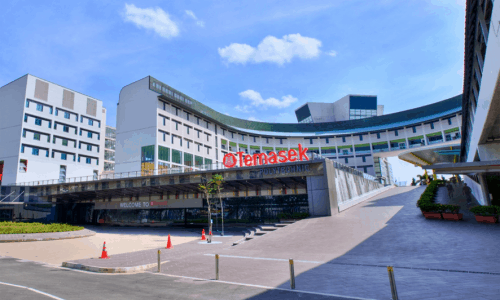Temasek Polytechnic has tapped Surbana Jurong to deploy more than 3,000 sensors across its 30-hectare campus as part of a digital integrated facilities management (IFM) services platform that will provide real-time accurate data to a digital twin that can identify faults, anticipate risks and predict changing facility conditions with unprecedented accuracy.
The digital IFM services platform is included in the university’s digitalisation plans to improve work processes and operational efficiencies for the entire campus including landscape, linkways and 49 buildings on site.
Furthermore, this latest project is in line with Singapore’s Integrated Digital Delivery (IDD) vision to integrate building operations and maintenance work processes digitally. The IDD is a key thrust in the Construction Industry Transformation Map and is aligned to city’s efforts to train a highly-skilled workforce to use technology throughout the entire life cycle of a project from planning to design, construction and operations.
The project is expected to be fully rolled out by September 2021.
The platform will collect and monitor data from the air conditioning and mechanical ventilation system to ensure that temperature and humidity levels remain healthy for students and campus staff. Sensors installed at various locations around the campus will also be able to keep tabs on the number of persons in specific facilities to ensure that capacity limits are not breached. Data collected from these occupancy sensors will also help the campus manager identify usage patterns and potentially re-configure the campus to be more cost-effective to operate.
By aggregating the data collected from the various mechanical and electrical systems on the facilities management platform, Temasek Polytechnic will be able to monitor energy usage and identify opportunities to reduce costs and lower carbon footprint.
“We have 49 buildings spread across a 30-hectare campus, so it makes practical sense to pursue and implement smart FM solutions across campus. This will not only be sustainable and save on resources, but will also benefit our students from the Diploma in Integrated Facility Management, who will be getting hands-on learning and working experience. By using such real data in decision-making, they will be exposed to the future of facility management, moving forward,” said Gary Png, director of estates and facilities management at Temasek Polytechnic.
For the last six years. Surbana Jurong has been overseeing the IFM at the university, including the routine maintenance of buildings and amenities, mechanical and electrical services, conservancy works, fire protection, and pest and landscape management.
“The development of the digital IFM platform at TP, which includes the deployment of 24K and OMNI by Surbana Jurong and that of the IoT sensors by UnaBiz, is a step-up in offerings to facilitate the development of a smarter and more sustainable campus for TP,” said James Chan, managing director at SMM, which is Surbana Jurong’s facilities management arm.
He added: “One distinct benefit of our solution will be enabling Temasek Polytechnic to receive real-time information of the environment as well as the health condition of the various mechanical and electrical systems, and to rectify them before they become faulty or waste unnecessary energy and cost as a result.”
Jonathan Tan, managing director of UnaBiz Singapore pointed out that the convergence of digital twin, IoT, and machine learning allows facility managers to transform data into actions.
“Real-time access to accurate data combined with Building Information FM Model, empower facility managers to respond to issues immediately, or even better, provide a high degree of prediction accuracy to prevent breakdowns, optimise building performance and increase energy efficiency, the key drivers of sustainability at large,” he said.



